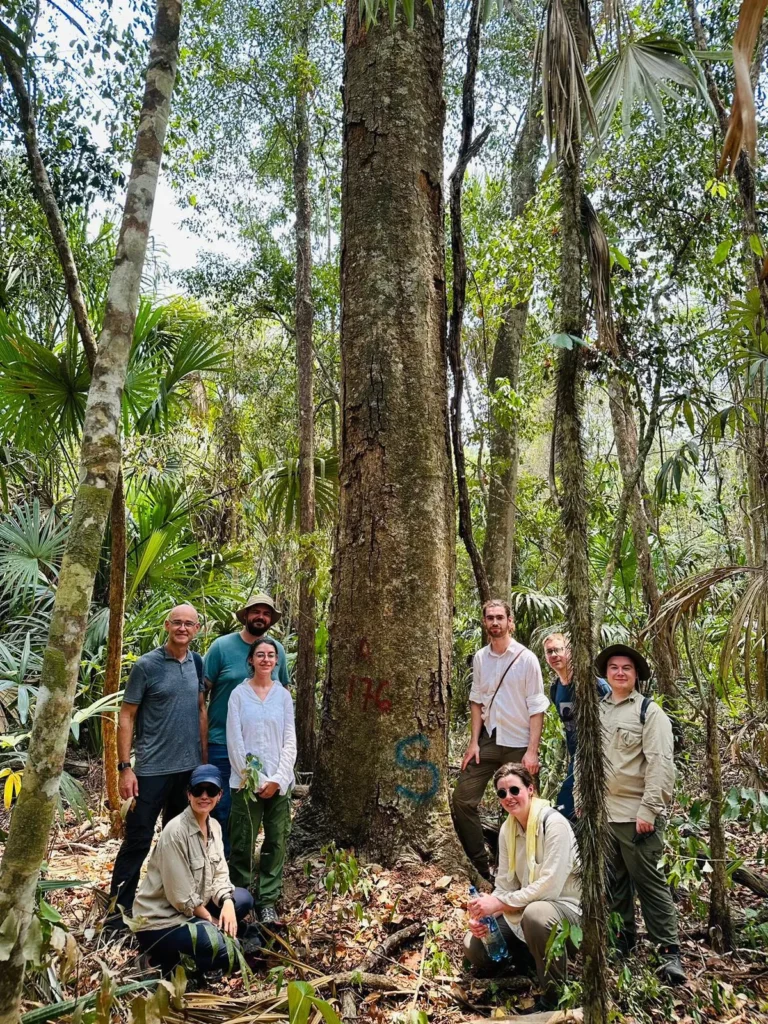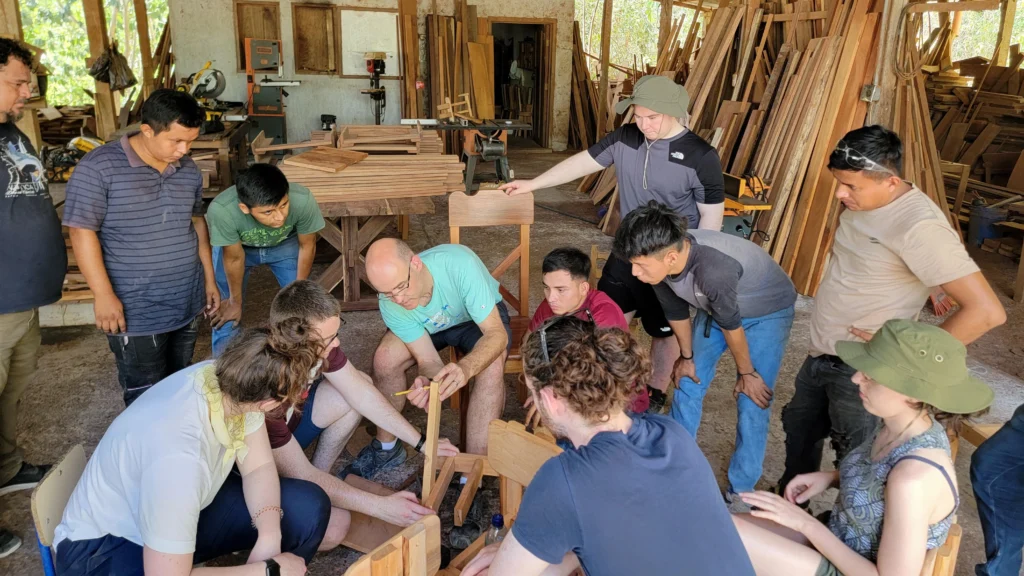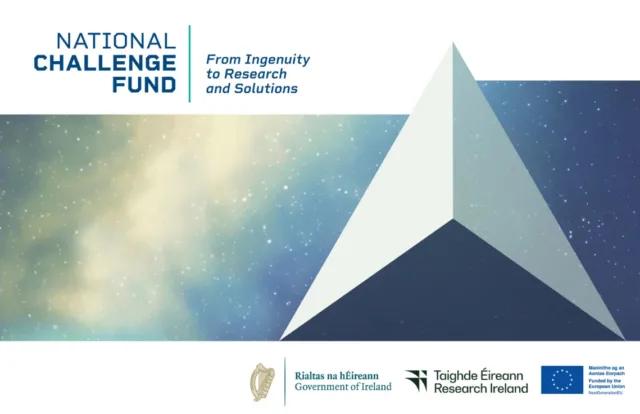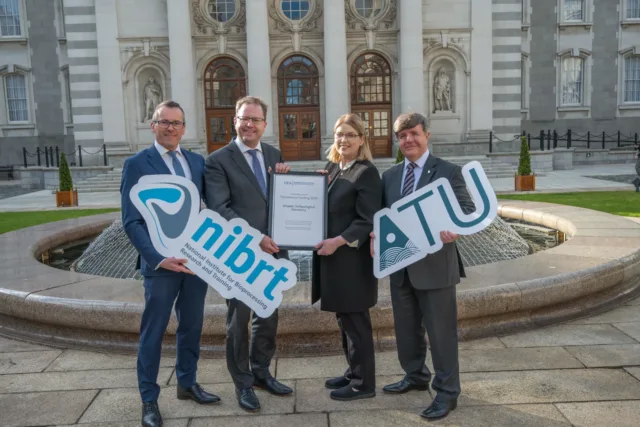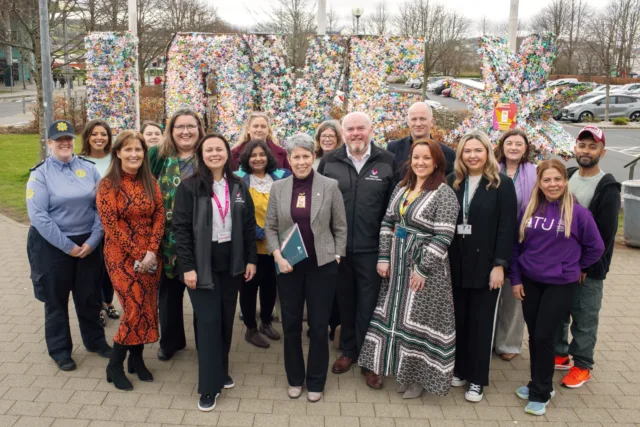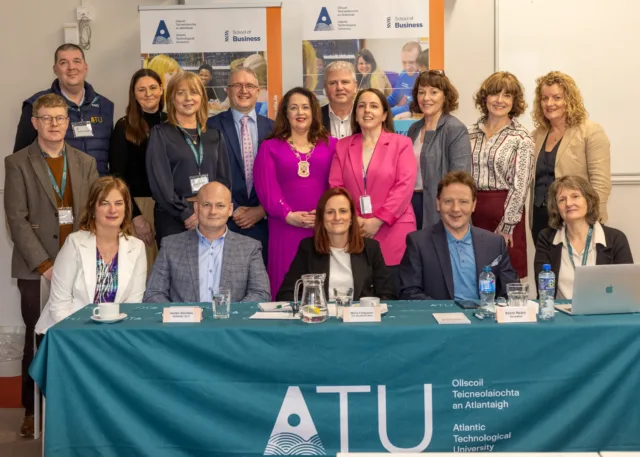County Galway joins global conservation timber programme through County Council and ATU partnership
Students from ATU Connemara’s School of Design & Creative Arts last month visited the fast-growing Guatemalan community forests of Uaxactún and Carmelita, which collectively protect 320,000 acres of rainforest, as part of their delivery of a sustainable tropical wood skills project.
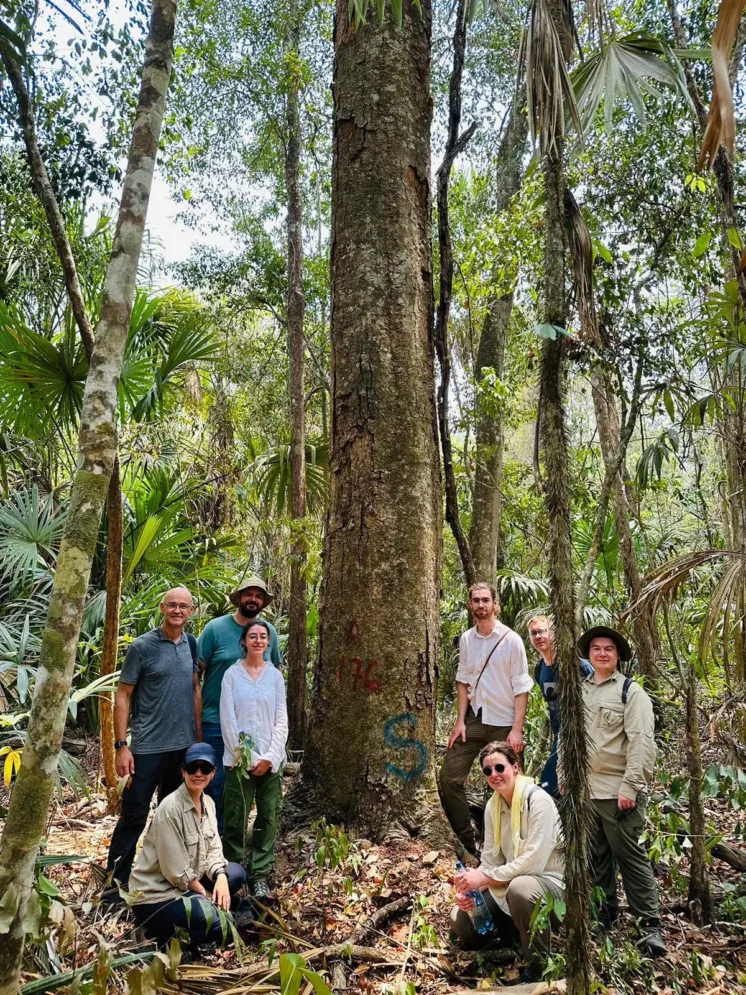
County Galway has become the first Irish participant in an international programme aimed at sequestering millions of tonnes of carbon through partnerships with communities who are successfully conserving tropical forests.
Galway County Council has partnered with Atlantic Technological University (ATU) Connemara, WoodConnect – Ireland’s wood industry cluster, Pilot Projects and Greenville Procurement Partners as part of the Cities4Forests Partner Forest Programme through which partners are invited to source tropical hardwood from exemplary community forest conservation enterprises to be used in prominent public infrastructure.
Students from ATU Connemara’s School of Design & Creative Arts last month visited the fast-growing Guatemalan community forests of Uaxactún and Carmelita, which collectively protect 320,000 acres of rainforest, as part of their delivery of a sustainable tropical wood skills project.
Items of street furniture produced by the students from conservation timber are currently on public exhibition at the ATU Connemara campus ahead of their permanent installation at various locations throughout the town of Clifden. A number of pieces will also be exhibited at Áras an Chontae in Galway City.
As part of the initiative, the project partners are co-creating a green and sustainable purchasing policy for wood in furniture and construction in County Galway.
“We are honoured to be the only Irish partner in an international programme that includes New York, Copenhagen, Glasgow, Quito, Paris, Turin and Amsterdam,” stated Liam Conneally, Chief Executive of Galway County Council.
He continued, “The major learnings from our participation in the programme to date is the necessity of adopting sustainable practices around timber procurement and how the economic support of community-led businesses in well-managed forest areas is one of the proven ways to conserve forests.”
Mr. Conneally confirmed that Galway County Council is currently at draft stage in its development of a Green Public Procurement Strategy which includes a process for the sustainable procurement of wood.
Paul Leamy, Head of ATU Connemara Campus said, “One of the outcomes from the project was the design and manufacture of outdoor furniture for Clifden Town by ATU students using conservation timber from partner forests to raise awareness of the importance of the sustainable procurement of wood. The students have completed wonderful projects, and we now invite the public to view the furniture items and learn more about the community enterprises protecting tropical forests and the conservation benefits of using sustainably sourced wood.”
Commonly referred to as the “lungs of the planet”, tropical rainforests are under increasing threat from large-scale farming and ranching, infrastructure and urban development, unsustainable logging, mining and climate change. However, the Cities4Forests Partner Forest Programme has demonstrated that low impact forestry practices with a focus on conservation is helping to protect tropical rainforests, which is a major step towards restoring the earth’s carbon balance.
Scott Francisco, Cities4Forests Director and Founder and Director of Pilot Projects commented, “The Partner Forest Programme promotes mutually beneficial relationships between local governments and faraway forests to help promote knowledge of the sustainable consumption of forest products, protect biodiversity, restore global climate health and support forest communities’ livelihoods and wellbeing.”
“Tropical timber, particularly from species of hardwood trees that are not generally regarded as commercially viable can be sustainable as it has impact beyond its material, including on people and the environment, when it is sourced correctly and sustainably,” he added. “Local and municipal authorities participating in the Partner Forest Programme, can bring their learnings from this project into their own policy making, daily operations, and management and nurturing of local forests and treescapes with benefits for the environment and the communities they serve.”
Visit www.cities4forests.com for more.
-Ends-
For further information please contact:
Mark Dunphy, Dunphy Communications, (00353)86-8534900, www.dunphycommunications.ie
or
Regina Daly, Atlantic Technological University Communications, (00353)87-9618355, regina.daly@atu.ie www.atu.ie/news
